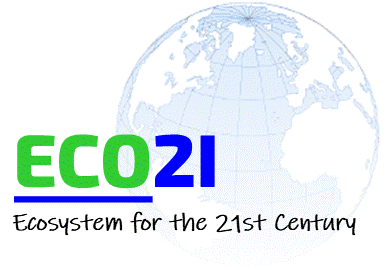Moderating Consumption
Our research on moderating consumption explores sustainable strategies to balance economic growth with environmental responsibility. Global consumption rates have surged in recent decades, with the world consuming over 100 billion tons of materials annually, a figure expected to double by 2060 if current trends continue. Food waste alone accounts for nearly 1.3 billion tons per year, while overconsumption of consumer goods contributes to 30% of global carbon emissions. The need to moderate consumption is critical to ensure resource sustainability, reduce waste, and mitigate climate change. ECO21 advocates for responsible consumer behavior, the adoption of circular economy principles, and policies that promote sustainable production and consumption. By addressing food waste, overproduction, and excessive resource extraction, societies can transition toward a more equitable, efficient, and regenerative economic model. Through its research and initiatives, ECO21 seeks to educate, innovate, and implement solutions that encourage mindful consumption across all sectors, from food to consumer products and services, ensuring a more balanced future for the planet.


Protecting Habitat
Protecting habitat is essential to preserving biodiversity and ensuring the survival of countless species. Currently, the world is experiencing an alarming rate of habitat loss, with nearly 75% of the Earth's land surface significantly altered by human activities. Deforestation alone results in the loss of 10 million hectares of forest annually, contributing to the rapid decline of wildlife populations, which have decreased by nearly 69% since 1970, according to WWF. The sixth mass extinction is underway, with over 1 million species at risk due to habitat destruction, climate change, and pollution. To counter this crisis, ECO21 advocates for the development of eco-friendly homes and sustainable urban design that prioritize green spaces, renewable energy, and efficient public transportation. The transition to car-free environments and pedestrian-friendly cities can dramatically reduce carbon emissions, improve air quality, and restore natural ecosystems within urban settings. By integrating nature-positive infrastructure, promoting reforestation, and embracing regenerative land-use practices, societies can build a future where both humans and wildlife thrive in harmony. ECO21’s vision is to reshape modern living through innovative, sustainable, and inclusive urban planning, ensuring a resilient and biodiverse planet for future generations.
Regenerating Resources
Regenerating resources is crucial to reversing environmental damage caused by excessive reliance on non-renewable resources such as fossil fuels, minerals, and deforested wood. Currently, 80% of global energy consumption comes from non-renewable sources, leading to over 35 billion tons of CO₂ emissions annually and accelerating climate change. The extraction of finite resources has degraded 75% of the Earth's land surface, causing deforestation, soil depletion, and water scarcity. To combat this crisis, ECO21 promotes the transition to renewable resources such as solar, wind, hydro, and geothermal energy, along with the development of sustainable materials like biodegradable plastics, bamboo, and recycled composites. The adoption of circular economy principles, where materials are reused, repurposed, and regenerated, can drastically reduce waste and pollution. By investing in green technology, sustainable agriculture, and closed-loop production systems, societies can create a self-sustaining, low-impact economy that supports both the environment and economic growth. ECO21 envisions a future where regenerative resources replace extractive industries, fostering a world that thrives on sustainability, innovation, and ecological balance.


Let's build a better world together!
© 2025. All rights reserved.
